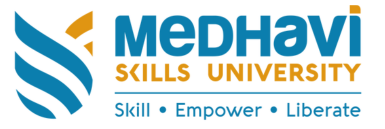- Beyond the Headlines: Expert education news consult sheds light on transforming schools and student success.
- The Rise of Personalized Learning
- Technology Integration in the Classroom
- The Impact of Artificial Intelligence
- The Importance of Digital Literacy
- Addressing Equity Gaps in Education
- The Role of School Counseling
- Funding and Resource Allocation
- The Future of Teacher Training and Professional Development
- Micro-credentialing for Educators
- The Role of Mentorship
- Navigating the Evolving Educational Landscape with Effectiveeducation news consult
Beyond the Headlines: Expert education news consult sheds light on transforming schools and student success.
The landscape of education is in constant flux, driven by technological advancements, evolving pedagogical approaches, and shifting societal needs. Staying informed about these changes is crucial for educators, policymakers, and parents alike. Effective education news consult services play a vital role in sifting through the vast amount of information available, providing insightful analysis, and offering practical guidance to navigate these complexities. This article delves into the critical aspects of staying current with educational developments and the benefits of consulting experts in the field.
A proactive approach to understanding the current state of education is no longer a luxury but a necessity. School systems across the globe grapple with unprecedented challenges, ranging from funding constraints and equity gaps to incorporating technology responsibly. Access to reliable, evidence-based information empowers stakeholders to make informed decisions that positively impact student outcomes.
The Rise of Personalized Learning
Personalized learning, a pedagogical approach tailoring instruction to individual student needs, has gained significant traction in recent years. What was once considered a futuristic ideal is now becoming increasingly attainable through technology and data analytics. The ability to track student progress in real-time allows educators to identify learning gaps and provide targeted support. However, the successful implementation of personalized learning requires careful planning, ongoing professional development, and a commitment to equity, ensuring that all students have access to the resources they need to thrive.
One of the key components of successful personalized learning is the use of adaptive learning platforms. These platforms utilize algorithms to adjust the difficulty level of content based on a student’s performance, providing a customized learning experience. This approach can be particularly beneficial for students who are struggling with certain concepts, as it allows them to receive extra support in those areas. Furthermore, personalized learning can also empower gifted students to accelerate their learning and pursue their interests in greater depth.
| Khan Academy | Free, comprehensive content, personalized practice exercises. | Free |
| Dreambox Learning | Adaptive math curriculum, individualized learning paths. | $10 – $15 per student per month |
| Newsela | Nonfiction articles at multiple reading levels, personalized news feeds. | $8 – $12 per student per year |
Technology Integration in the Classroom
Technology’s role in education continues to expand, offering both exciting opportunities and significant challenges. Interactive whiteboards, laptops, tablets, and educational software are becoming increasingly commonplace in classrooms. However, simply introducing technology is not enough. Teachers need ongoing professional development to effectively integrate these tools into their lesson plans and leverage their full potential. A thoughtful approach to technology integration prioritizes pedagogical goals and focuses on enhancing student engagement and learning outcomes, for instance, virtual reality utilizes strong engagement.
Furthermore, issues of digital equity must be addressed. Not all students have equal access to technology outside of school, creating a digital divide that can exacerbate existing achievement gaps. Schools need to ensure that all students have access to the devices and internet connectivity they need to participate fully in the digital learning environment, so consideration should be taken to providing additional resources to students in need.
The Impact of Artificial Intelligence
Artificial intelligence (AI) is poised to revolutionize education in numerous ways. AI-powered tools can automate administrative tasks, freeing up teachers to spend more time with students. They can also provide personalized feedback to students, identify struggling learners, and even create customized learning materials. However, the ethical implications of using AI in education must be carefully considered. Concerns about data privacy, algorithmic bias, and the potential for job displacement need to be addressed proactively. Exploring the ongoing integration of AI into education can provide some insight into how we may adapt optimal educational strategies for students in the future.
The Importance of Digital Literacy
In today’s digital age, digital literacy is an essential skill for all students. This includes the ability to critically evaluate online information, communicate effectively using digital tools, and protect themselves from online risks. Schools have a responsibility to equip students with the knowledge and skills they need to navigate the digital world safely and responsibly. This requires incorporating digital literacy instruction into the curriculum and providing students with opportunities to practice these skills in real-world contexts.
Addressing Equity Gaps in Education
Equity gaps in education persist, with students from marginalized communities consistently underperforming compared to their peers. Addressing these gaps requires a multifaceted approach that tackles systemic barriers and provides targeted support to students in need. This includes investing in high-quality early childhood education, providing equitable funding for schools, and implementing culturally responsive teaching practices. It’s a complex challenge that necessitates the collaboration of educators, policymakers, and community leaders.
One promising approach is to implement restorative justice practices in schools. Restorative justice focuses on repairing harm and building relationships, rather than simply punishing students for their misbehavior. This approach can be particularly effective in addressing disciplinary disparities and creating a more positive and inclusive school climate. This can lead to better student behavior, more positive relationships with educators, and a more effective learning environment for all students.
The Role of School Counseling
School counselors play a critical role in supporting students’ academic, social, and emotional well-being. They provide individual and group counseling, crisis intervention, and college and career guidance. However, many schools are understaffed with counselors, leaving students without access to the support they need. Increasing the number of school counselors is essential to ensuring that all students have the opportunity to thrive. Providing mental health provisions that are available to all students can help students overcome certain barriers that can potentially hinder academic success.
Funding and Resource Allocation
Equitable funding is a fundamental requirement for addressing equity gaps in education. Schools in low-income communities often lack the resources they need to provide a high-quality education to their students. This inequity can manifest in a number of ways, including larger class sizes, outdated textbooks, and limited access to extracurricular activities. Advocating for more equitable funding formulas is essential to ensuring that all students have access to the opportunities they deserve.
- Increased funding for Title I schools
- Targeted support for students with disabilities
- Professional development opportunities for teachers
- Expanded access to early childhood education
The Future of Teacher Training and Professional Development
Effective teacher training and ongoing professional development are essential for ensuring that educators are prepared to meet the challenges of the 21st century. Traditional teacher preparation programs often fail to adequately prepare teachers for the realities of the classroom. Therefore, it is imperative to reimagine teacher training and professional development to focus on practical skills, culturally responsive teaching, and the integration of technology.
A shift towards personalized professional development is also needed. Teachers have different strengths and weaknesses, and their professional development should be tailored to their individual needs. Mentoring programs, peer coaching, and opportunities for ongoing learning are all valuable components of effective professional development. Investing in teachers is an investment in the future of education. Continuing to foster skills will allow educators to flourish in their roles.
Micro-credentialing for Educators
Micro-credentialing offers a flexible and affordable way for teachers to upskill and enhance their expertise. Micro-credentials are digital badges that recognize the mastery of specific skills or competencies. They are earned through online courses, workshops, and other professional learning experiences. Micro-credentialing allows teachers to focus on the areas where they need the most improvement and demonstrate their expertise to potential employers. Considering that teachers must meet continual performance evaluation requirements, micro-credentials can be a potential way to quickly meet required qualifications.
The Role of Mentorship
Mentorship programs can be particularly valuable for new teachers. Experienced teachers can provide guidance, support, and encouragement to new teachers as they navigate the challenges of the profession. Mentorship can help new teachers develop their skills, build confidence, and avoid burnout. A strong mentorship program can be a valuable asset for any school district.
- Identify experienced teachers with strong mentoring skills.
- Provide mentors with training and support.
- Match mentors and mentees based on their needs and interests.
- Provide regular opportunities for mentors and mentees to meet.
Navigating the Evolving Educational Landscape with Effective education news consult
Staying abreast of the rapid changes in education is a significant undertaking. Numerous sources compete for attention, making it difficult to discern reliable information from misinformation. That’s where experienced education news consult professionals come in. They provide a curated source of knowledge and insight, saving educators time and ensuring access to the most relevant and credible information.
The benefits of engaging with experts are manifold, ranging from informed decision-making and innovative program implementation to a strengthened commitment to student success. By leveraging expert knowledge, we can collectively build a more effective, equitable, and engaging educational system for all. The field of education must remain innovative to continue to meet the needs of all students and educators.






